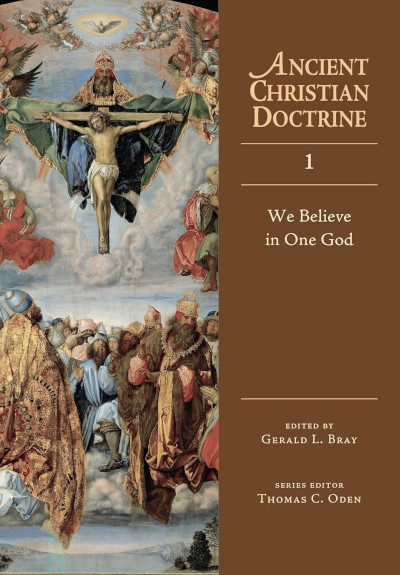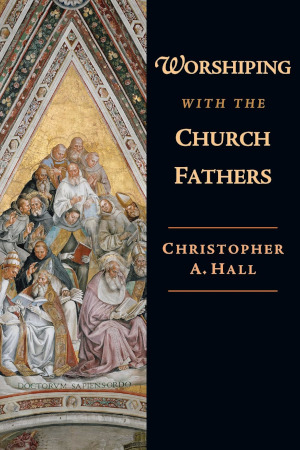Book Review - Ancient Christian Doctrine 1: We Believe in One God

Mention the “Church Fathers” and “Roman Catholicism” will likely spring to the minds of many pew-warming (and some pulpit-filling) evangelicals and fundamentalists. Let’s face it, for many Protestants, Christian history begins in 1517 with Martin Luther’s nailing his 95 theses to the door of the Wittenberg Church. The fourteen hundred years of Christian history spanning Revelation to the Reformation is often foggy and remote. So large a lacuna in Christians’ understanding of the development of foundational doctrines makes them easy prey for Dan Brown, Bart Ehrman and their insidious ilk, who are eager to fill the vacuum with lies and innuendo about suppressed gospels and altered manuscripts. Series editor Thomas Oden notes, “To the extent Christians today ignore the ancient rule of faith, they remain all the more vulnerable to these distortions” (p. xiv). Diagnosing the problem is half the battle: what can be done to remedy it?
A helpful corrective (even if not a silver bullet) has come in the five-volume Ancient Christian Doctrine series published by IVP Academic in 2009. The series is self-described as “a collection of doctrinal definitions organized around the key phrases of the Nicene-Constantinopolitan Creed (commonly called simply The Nicene Creed) as viewed by the foremost ancient Christian writers” (p. vii). Those ancient Christian writers include the disciples of the original disciples and those disciples who pressed on the work in the years spanning AD 95 through 750.
Despite the fact that eminent Reformers Martin Luther and John Calvin were steeped in the Church Fathers, that fertile ground was, over the intervening centuries, ceded to Catholicism (at least by the rank and file churchgoers outside the academy). Catholic writers, most notably Mike Aquilina, have in recent years produced dozens of accessible works that have successfully popularized patristics for a predominantly Catholic audience. These treasured writings predating the Schism and the Reformation nonetheless remain a blind spot for many non-Catholics. Oden acknowledges this unfortunate fact when noting “the evangelical tradition is far more famished for their sources, having been longer denied sustenance from them” (p. xvi).


Discussion